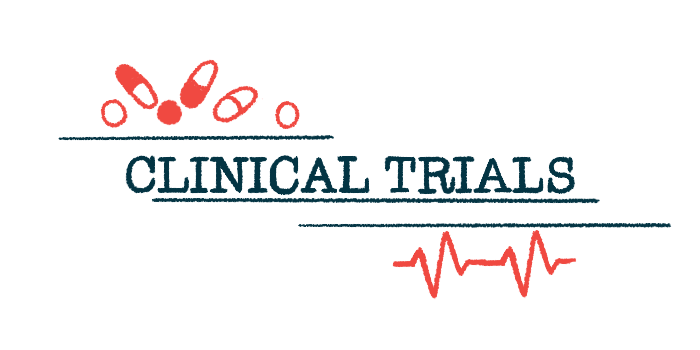Bridge Biotherapeutics Launches Phase 2a Trial of BBT-877 in IPF
The 50-site trial will assess safety, tolerability, effectiveness of the therapy

Bridge Biotherapeutics has launched a Phase 2a clinical trial to assess the safety, tolerability, and effectiveness of BBT-877 in people with idiopathic pulmonary fibrosis (IPF).
The trial (NCT05483907) is expected to enroll around 120 IPF patients, ages 40 and older, in 50 clinical sites in North America, Europe, and Asia Pacific, which are expected to be selected next year.
It’s open to patients who have and have not been previously treated with standard medications, including Esbriet (pirfenidone) and Ofev (nintedanib). In order to be eligible to participate, previously treated patients must be on a medication for at least three months and with a stable dose in the four weeks prior to screening. More information on eligibility criteria and recruitment will be made available.
Following enrollment, patients will be randomly assigned to receive either BBT-877 at a dose of 200 mg twice daily or a placebo, for 24 weeks (around six months). They will then be followed for an additional four weeks.
The trial’s main goal is to assess the effectiveness of BBT-877, compared with that of the placebo, after 24 weeks. Efficacy will be assessed by comparing reductions between the two groups in forced vital capacity (FVC), a lung function measure that indicates the total amount of air a person is able to exhale after a deep breath. The therapy’s safety and tolerability will also be evaluated.
“The Phase 2 trial of BBT-877 is part of our unique franchise approach to treating idiopathic pulmonary fibrosis,” James Lee, founder and CEO of Bridge Biotherapeutics, said in a press release.
BBT-877 is an oral medication designed to block autotaxin (ATX), an enzyme that plays a role in producing lysophosphatidic acid (LPA), a fatty molecule involved in tissue scarring, or fibrosis. Increased levels of ATX have been found in the lungs of people with IPF. By inhibiting ATX, it’s hoped BBT-877 can slow the disorder’s progression.
In a previous Phase 1 clinical trial (NCT03830125) of healthy volunteers, BBT-877 was found to be safe and well tolerated. Participants in the single-ascending dose group saw their LPA levels drop at least 80% for 24 hours after receiving 400 mg or more of BBT-877. In the multiple-ascending dose group, both 100 mg twice daily and 200 mg twice daily dosing regimens lowered LPA levels by up to 90% at a steady state.
“BBT-877 is the most advanced asset in our IPF program, which includes BBT-301 and BBT-209. Bridge remains focused on developing novel treatments for IPF through a variety of modalities,” Lee said.
BBT-877 was originally developed by the Korean biotech company LegoChem Biosciences, which licensed its exclusive worldwide rights to Bridge Biotherapeutics. In July 2019, Boehringer Ingelheim obtained a license from Bridge Biotherapeutics to develop BBT-877 beyond Phase 1, but the agreement was ended in November 2020.








